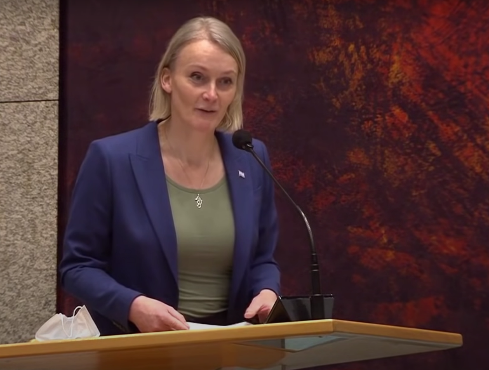Last January, Lisa van Ginneken took office as a member of parliament for D66. Together with colleague Hind Dekker-Abdulaziz, she is responsible for digitization, cyber security and privacy. Data&Privacyweb visited Van Ginneken for a conversation about digitization, the position of the Autoriteit Persoonsgegevens (AP) and what it means to be in politics as an IT professional.



